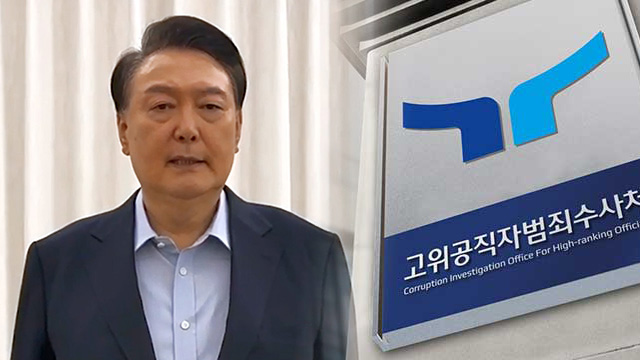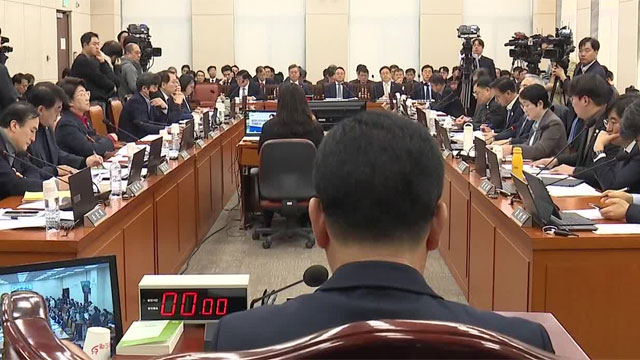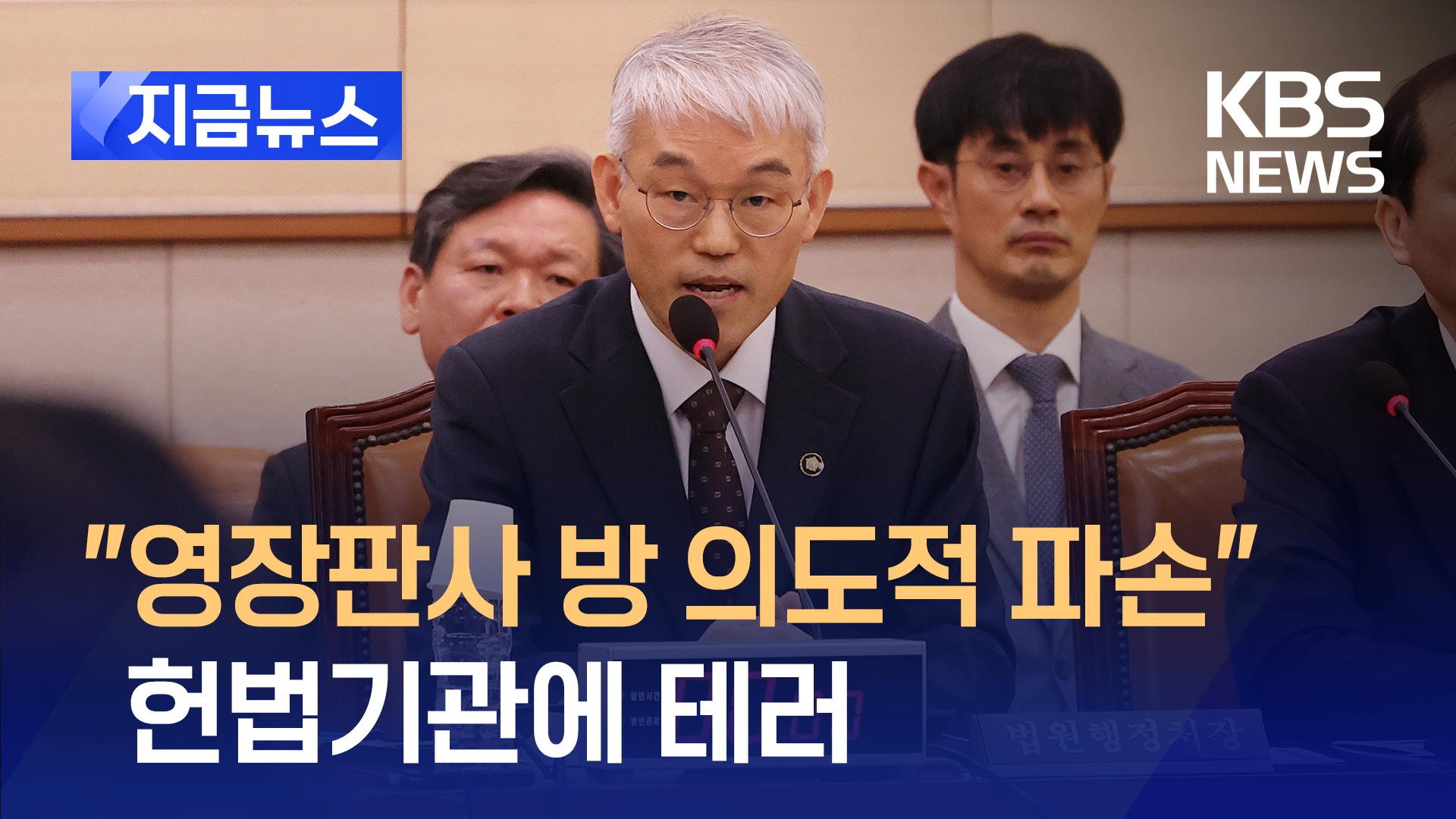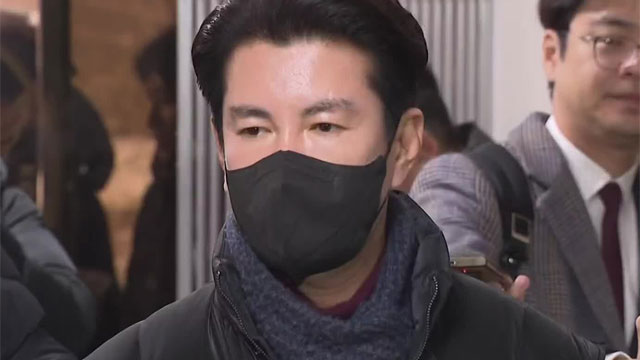[News Today] STEELMAKERS FIGHT FALLING DEMAND
입력 2025.01.14 (16:15)
수정 2025.01.14 (16:15)
읽어주기 기능은 크롬기반의
브라우저에서만 사용하실 수 있습니다.
[LEAD]
We now turn to economic news. South Korea is facing deepening challenges in its core industries, including steel and petrochemicals, due to risks from the United States and China. The steel sector is particularly hard-hit, with downturns in construction, leading to factory closures and reduced production as companies fight to survive.
[REPORT]
Incheon plant is home to Hyundai Steel headquarters, a company that boasts annual sales of 22 trillion won, some 15.3 billion US dollars.
The market leader in rebar production has the capacity to produce nearly 1.3 million tons per year. But it has decided to pause plant operations.
Steel sector official / (VOICE MODIFIED)
Production leads to inventory and if stockpiles rise, they will inevitably be sold below cost, creating a vicious cycle.
A factory just next door belongs to Dongkuk Steel, the No. 2 leader in rebar output.
Already since July, Dongkuk lowered its operation rate to 60% by only running its factories at night.
All this has affected business sentiment at commercial districts in the area.
Nearby restaurant owner / (VOICE MODIFIED)
Clearly, there's a drop in customers from Dongkuk and Hyundai Steel, to the point it's affecting our bottom line.
A sharp decline in demand is the reason behind the steel sector's temporary suspension to slash production.
The construction industry which used to purchase more than half of all rebars produced is facing a slump while Chinese imports whose prices are 10 to 20 percent cheaper have also flooded the market.
Last year alone, steel demand fell over 10% domestically causing a 6% decrease in output, but apparently this was not sufficient.
POSCO shut down two of its plants last year.
Companies are exploring overseas market channels but also believe the introduction of non-tariff barriers is necessary to suppress Chinese steel shipments.
Lee Jae-yun / Korea Institute for Industrial Economics & Trade
We can apply pressure on foreign exporters by having them provide info on steel goods' producers and CO2 emission volume during production.
When the Trump administration which vowed to slap 60% universal tariff on China takes office in the U.S. next week, China may be eager to push out more of its goods elsewhere, which is a major concern for Korean steelmakers.
■ 제보하기
▷ 카카오톡 : 'KBS제보' 검색, 채널 추가
▷ 전화 : 02-781-1234, 4444
▷ 이메일 : kbs1234@kbs.co.kr
▷ 유튜브, 네이버, 카카오에서도 KBS뉴스를 구독해주세요!
- [News Today] STEELMAKERS FIGHT FALLING DEMAND
-
- 입력 2025-01-14 16:15:06
- 수정2025-01-14 16:15:38
[LEAD]
We now turn to economic news. South Korea is facing deepening challenges in its core industries, including steel and petrochemicals, due to risks from the United States and China. The steel sector is particularly hard-hit, with downturns in construction, leading to factory closures and reduced production as companies fight to survive.
[REPORT]
Incheon plant is home to Hyundai Steel headquarters, a company that boasts annual sales of 22 trillion won, some 15.3 billion US dollars.
The market leader in rebar production has the capacity to produce nearly 1.3 million tons per year. But it has decided to pause plant operations.
Steel sector official / (VOICE MODIFIED)
Production leads to inventory and if stockpiles rise, they will inevitably be sold below cost, creating a vicious cycle.
A factory just next door belongs to Dongkuk Steel, the No. 2 leader in rebar output.
Already since July, Dongkuk lowered its operation rate to 60% by only running its factories at night.
All this has affected business sentiment at commercial districts in the area.
Nearby restaurant owner / (VOICE MODIFIED)
Clearly, there's a drop in customers from Dongkuk and Hyundai Steel, to the point it's affecting our bottom line.
A sharp decline in demand is the reason behind the steel sector's temporary suspension to slash production.
The construction industry which used to purchase more than half of all rebars produced is facing a slump while Chinese imports whose prices are 10 to 20 percent cheaper have also flooded the market.
Last year alone, steel demand fell over 10% domestically causing a 6% decrease in output, but apparently this was not sufficient.
POSCO shut down two of its plants last year.
Companies are exploring overseas market channels but also believe the introduction of non-tariff barriers is necessary to suppress Chinese steel shipments.
Lee Jae-yun / Korea Institute for Industrial Economics & Trade
We can apply pressure on foreign exporters by having them provide info on steel goods' producers and CO2 emission volume during production.
When the Trump administration which vowed to slap 60% universal tariff on China takes office in the U.S. next week, China may be eager to push out more of its goods elsewhere, which is a major concern for Korean steelmakers.
이 기사가 좋으셨다면
-
좋아요
0
-
응원해요
0
-
후속 원해요
0















이 기사에 대한 의견을 남겨주세요.